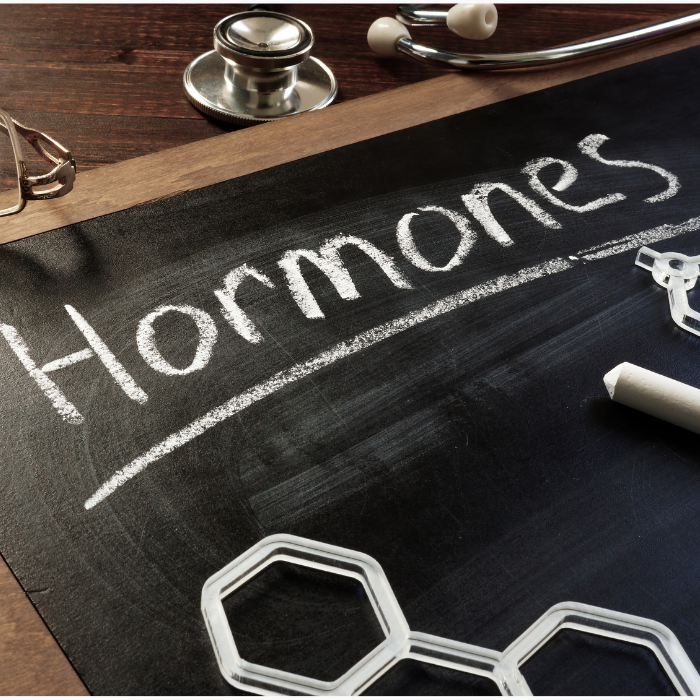In today’s fast-paced, high-demand world, many people struggle with symptoms that seem intangible yet deeply disruptive—foggy thinking, memory lapses, emotional reactivity, low motivation, or a lingering sense of unease. These issues are often chalked up to stress, burnout, or aging. But what if the root cause is physiological? What if your brain fog and emotional volatility stem not from your lifestyle alone, but from an internal imbalance in your body’s hormonal system? At Optimize U Louisville, we view cognition and mood not as isolated mental health concerns, but as reflections of your body’s biochemical balance—especially your hormones.
Hormones are chemical messengers that impact virtually every function in the human body, including the nervous system and the brain. These messengers regulate how we process thoughts, manage emotions, handle stress, and maintain focus. When hormone levels fall out of balance, it’s not just your body that feels off—it’s your mind. From serotonin and dopamine to cortisol and thyroid hormones, the intricate relationship between hormones and brain chemistry is central to mental clarity, mood resilience, and cognitive performance.
Among the most commonly overlooked contributors to mental fatigue and mood dysregulation is testosterone deficiency. Although often associated with libido and muscle mass, testosterone plays a profound role in regulating neurotransmitter activity—particularly dopamine, the brain chemical tied to motivation, focus, and a sense of reward. Low testosterone levels can lead to decreased drive, poor memory retention, reduced task initiation, and increased feelings of irritability or anxiety. This isn’t limited to men. Women also produce and rely on testosterone in smaller but critical amounts, and even modest declines can impair cognitive function and emotional well-being.
Hormone optimization for testosterone is not simply about restoring energy or physique—it’s about supporting the brain’s ability to function efficiently. At Optimize U, we frequently see clients who are highly successful, physically active, and otherwise healthy, yet describe a disconnection from their previous sharpness and confidence. Once their labs are evaluated, it’s not uncommon to find low or suboptimal testosterone contributing to their symptoms. Through targeted, individualized hormone therapy, we help restore this vital hormone to a level that supports full-spectrum cognitive and emotional wellness—not just a number on a lab report.
Another hormone that heavily impacts cognition and mood is thyroid hormone—particularly T3, the active form. The brain is extremely sensitive to thyroid levels, and even slight deficiencies can result in sluggish thinking, forgetfulness, poor concentration, and depressive symptoms. Individuals with undiagnosed hypothyroidism often report that they “just don’t feel like themselves”—a phrase we hear frequently in clinical practice. Many are told their TSH is “normal,” yet when deeper labs are run, they exhibit low free T3, high reverse T3, or autoimmune antibodies that indicate early dysfunction. By restoring optimal—not just average—thyroid hormone levels, we often see a dramatic return of mental clarity and emotional equilibrium.
The relationship between estrogen, progesterone, and brain health is particularly important in women. Estrogen influences the production and function of several neurotransmitters, including serotonin and acetylcholine—both of which are critical for mood stability, memory, and executive function. As estrogen declines during perimenopause and menopause, women often experience new or worsening symptoms of anxiety, irritability, mental fog, and emotional flatness. These changes are not “just aging.” They are the physiological result of fluctuating hormones affecting the brain’s chemical balance and structure. Estrogen also helps regulate cerebral blood flow and supports the health of neural tissue, making it a key hormone in protecting against cognitive decline over time.
Progesterone, known for its calming effects, interacts with GABA receptors in the brain—similar to anti-anxiety medications but without the side effects or dependency. When progesterone is low or imbalanced, women may struggle with insomnia, restlessness, and mood instability that feel disproportionate to life circumstances. Bioidentical hormone therapy, when carefully calibrated and monitored, allows us to restore these key hormones and help patients regain a greater sense of calm, focus, and emotional resilience.
One of the most misunderstood yet critical players in the mood-cognition-hormone connection is cortisol. Often vilified as the “stress hormone,” cortisol is not inherently bad—it’s essential for alertness, immune modulation, and daily functioning. However, when cortisol levels are chronically elevated (or chronically suppressed due to burnout), it can impair memory consolidation, increase anxiety, and disrupt sleep patterns. Many individuals with flat or erratic cortisol curves wake up groggy, feel overwhelmed throughout the day, and crash by early evening. Others feel wired but exhausted—unable to fully relax, yet unable to focus. At Optimize U Louisville, we evaluate cortisol along with DHEA and adrenal markers to assess the health of the stress-response system. From there, we craft a recovery plan that may include adaptogenic support, peptide therapy, nutrition protocols, and lifestyle strategies to rebalance cortisol rhythms and support cognitive performance.
It’s also important to consider the cumulative impact of sleep disruption on cognitive clarity and mood regulation. Hormonal imbalances frequently interfere with sleep architecture, reducing the amount of deep, restorative sleep and blunting the brain’s ability to recharge. For example, declining progesterone can lead to restless nights; elevated cortisol may cause early morning waking; and low testosterone or thyroid dysfunction may interfere with REM sleep, resulting in poor memory retention and irritability during the day. Many patients are unaware that their hormone profile directly influences the quality—not just quantity—of their sleep. Restoring hormonal balance often leads to deeper rest, which in turn restores clearer thinking, emotional stability, and greater capacity for stress tolerance.
Another tool we frequently leverage at Optimize U is peptide therapy, particularly nootropic and neuroregenerative peptides that support brain plasticity, inflammation resolution, and neurotransmitter balance. Peptides such as Semax, Selank, and Cerebrolysin-like compounds have shown promise in enhancing focus, reducing anxiety, and improving cognitive resilience under stress. When combined with hormone optimization and lifestyle guidance, these therapies help unlock a more sustainable and high-functioning version of mental performance—without the jitteriness of stimulants or the numbness of antidepressants.
What makes our approach different is our commitment to individualized, root-cause resolution. We do not offer one-size-fits-all hormone replacement or generic wellness advice. Every protocol is built on a foundation of deep diagnostic insight, including comprehensive hormone panels, metabolic markers, inflammatory indicators, and neurological symptom mapping. Our team of licensed providers works in partnership with each patient to identify what’s missing, what’s misfiring, and how to best restore optimal function across all systems.
Cognitive decline and mood instability are not always the result of psychiatric conditions or permanent neurological changes. In many cases, they are simply symptoms of a hormonal system that has gone out of alignment. And when that system is corrected—gently, safely, and with expert supervision—the transformation can be extraordinary. Clients who once struggled to get through meetings, connect with family, or feel in control of their day-to-day thoughts and emotions often describe a sense of coming back to life. Their brain becomes sharper. Their mood becomes steadier. And their confidence returns—not because their life has changed, but because their biology has.
At Optimize U Louisville, we understand that cognitive health is not separate from physical health—it’s an extension of it. If you’ve been feeling mentally foggy, emotionally drained, or unlike yourself, it’s time to take a closer look at your hormones. The brain and body are connected. When one suffers, the other follows. But when they are supported in harmony, both thrive.
You deserve to feel focused, calm, clear, and connected. Let us help you get there—with science, strategy, and the kind of care that sees the whole picture.






